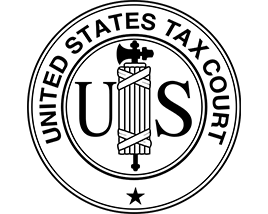Guardianship Attorney in Arlington Heights, IL
At the Law Office of Robert Thomas we take pride in assisting families during delicate times. A Guardianship is a legal relationship created when a person or institution named in a will or assigned by the court is to take care of minor children or incompetent/disabled adults. Guardians are adults appointed by a court who are legally responsible for protecting the well-being and interests of their ward, to include the ward’s personal affairs, medical care, where they live, and other necessities of life.
At the Law Office of Robert Thomas we
- Discuss circumstances/behaviors causing concern
- Verify the existence of a current Will, Powers of Attorney, and Trusts
- Explain the role of a guardian and discuss alternative to guardianship.
- Review the alleged disabled person’s finances if available, whether they are a disabled veteran, living arrangements, health, and prior financial interaction between the alleged disabled person and prospective guardian.
- Discuss Guardianship of Person, Guardian of Estate and/or both
- Whether a Temporary Guardian of Estate/Person is necessary
- Discuss need for doctor’s examination and report
- Obtain family tree and names, ages, and addresses of family members and interested persons
- Discuss procedure if alleged disabled person objects
- Prepare court documents to open estate
- File required documents
- Prepare you for the hearing
- Discuss possible complications at the hearing
- Discuss mental health concerns
Minor
A minor is a person who is under the age of 18. Since natural parents are automatically the legal guardian of their child, a guardianship of a minor is not necessary unless both natural parents are dead or are deemed by a court not to be competent to transact their own business and/or not fit to act as legal guardian of their child.
Incapacitated / Disabled Person
A disabled person is a person 18 years or older with a developmental disability, a person with a mental illness, physically disabled person, or a person who is disabled due to mental deterioration. A disabled person is also a person who suffers from excessive use of alcohol or drugs, gambling, idleness, or debauchery.
Guardianship Process
Required Documentation:
- Petition for Appointment of Guardian – Petition for a person seeking to be the guardian once another person becomes disabled or is a minor.
- Report – Written report from the current treating physician stating whether the disabled or minor can function independently and make decisions.
- Oath of Office – Sworn statement of proposed guardian affirming that he/she will faithfully discharge the duties of the office of representative.
- Bond – Requirement for when a person is a guardian of the estate.
- Order of Adjudication of Disability – Directs letters of office to be issued stating that the person has been named guardian of the minor/disabled.
I. At the Initial Hearing, the court will review the above documentation and appoint a Guardian Ad Litem (GAL). The GAL will meet with and interview the minor/disabled person. The GAL advises the minor/disabled person of his/her rights during the guardianship process. They are the eyes and ears of the judge. The GAL will report in writing to the court, at the next scheduled hearing date, results from the interview that took place with the minor/disabled person to help determine whether a guardianship would be best for the interests of the minor/disabled person.
II. The person seeking to be the guardian must establish by clear and convincing evidence that the person is in fact disabled. The judge must inquire into: physical and intellectual capabilities, capacity to make and communicate responsible decisions, ability to manage his/her own affairs, and whether the person’s current living arrangements are appropriate.
III. At the conclusion of the hearing the judge may either: issue an Order of Adjudication of Disability that directs Letters of Office to be issued allowing the guardian to be named OR allow the disabled person to hire his/her own counsel to contest the recommendations of the GAL and oppose the guardianship, OR the court may appoint independent counsel to represent the disabled person.
IV. Post-Appointment of Guardian actions include:
- Inventory of ward (disabled person’s) assets and sources of income
- Accountings
- Care Plan presented to the court of the ward’s physical and mental condition, residential placement, education, socialization, and supervision as appropriate.
- Counseling to the guardian
Termination of Adjudication of Disability/Revocation of Letters of Office
Guardianship may be terminated upon petition of the disabled person. When a disabled person passes away their estate is opened immediately thereafter and final accounting must be completed. All real and personal property becomes the Executors/Administrators/Spouse, the Guardians are discharged, the bond is cancelled, the Guardianship estate closes.
Other Practice Areas
- Family Law
- Divorce Law
- IRS and Tax Collection
- Estate Planning
- Probate Law







